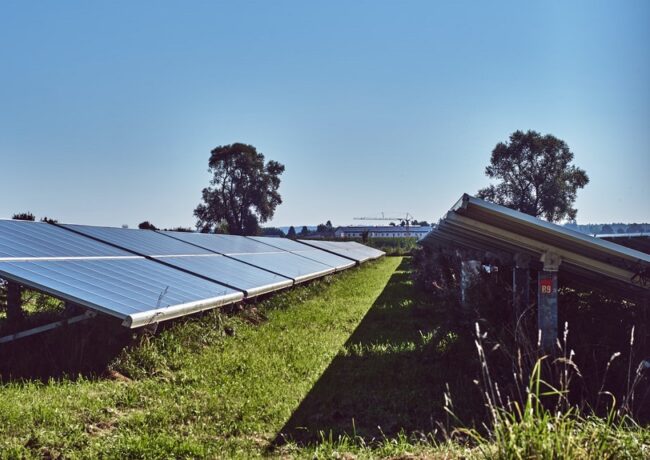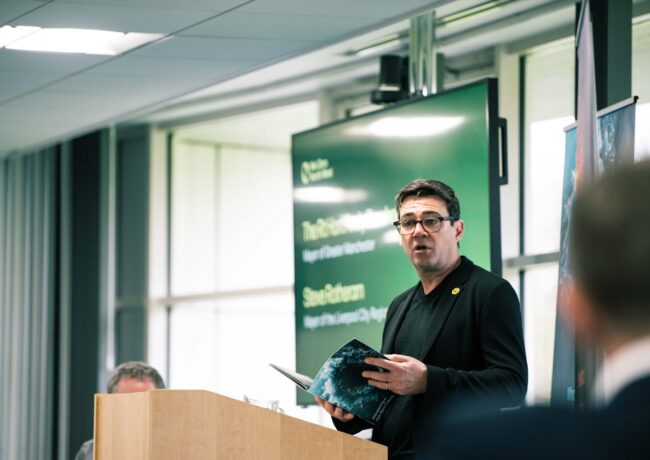Manchester’s £39m solar farm hunt heats up
The city council’s climate change committee will meet this week to progress a plan to acquire a renewable energy asset in the South of England.
Last year, Manchester City Council revealed it was considering spending up to £30m on a solar farm in a bid to meet its carbon reduction ambitions, namely cutting emissions by 7,000 tonnes a year by 2025.
The authority is aiming to be zero carbon by 2038.
Estimates for how much a 250-acre solar farm would cost have increased since last year and the council now plans to borrow up to £39m subject to executive approval, according to a report to the authority’s climate change scrutiny committee.
Borrowing for the acquisition would be financed over the life of the asset from the council’s reduced expenditure with other energy providers, and the generation of surplus power that could then be sold.
At present, the council is in talks over two sites that would meet its 45-60 megawatt requirement, having found no suitable locations in Manchester borough.
Site one – a 45.3 MW scheme due to go live in June 2023 that would provide 95% of the council’s targeted reduction in CO2 by 2038.
Site two – two schemes totalling 58 MW. The 21 MW scheme connects in March 2022 and the 37MW scheme connects in June 2022. These sites would meet the council’s total carbon reduction target.
Other options could be considered as talks with developers continue, Manchester City Council said.
The lifespan of the assets is likely to be in the range of 25-35 years, according to the authority.
As well as buying a solar farm, another option available to the council is entering into a power purchase agreement, whereby a party buys renewable energy from a renewable energy provider.
However, the solar farm acquisition is the council’s first choice.
At Thursday’s meeting, the climate change committee is asked to progress the plans and allow council bosses to enter into negotiations for the purchase.
Cllr Tracey Rawlins, executive member for environment, said: “Owning our own solar farm would not only reduce our carbon emissions by thousands of tonnes a year, it also has the potential to reduce our energy costs over time and protect us from price rises in a volatile market.
“If the council’s executive agrees, the next step will be for us to enter into detailed negotiations for the potential purchase of a solar farm.”





How does this meet the council carbon emission reduction doesn’t the energy go into the grid? or is the council getting this electricity generated directly?
By Anonymous
How does buying a solar farm down South benefit Manchester and reduce Manchester’s CO2 emissions? Confused.com
By Steve
I’m guessing Manchester wants to buy renewable energy, and ultimately solar is an asset management business. Manchester can probably finance this government backed debt. Last time I looked 30 year gilts were 1.3% yield, why buy electricity from the private sector with more expensive borrowing to support the same guaranteed cashflow.
By Rich X
Manchester Council should purchase solar assets in the locality of Manchester. The South of England is suffering enough from industrial solar farms blighting the countryside and the approach that Manchester is taking will cause further pressure on the south’s countryside. Surely Manchester Council can be more imaginative and use Manchesters brownfield, industrial space (roofs etc) and other spaces to source local electricity. This has added bonus of local job opportunities.
By Patrick Drury
@Patrick The flat and unremarkable countryside in the south isn’t very attractive or of high value compared to the north and would be best used by being built on for these important infrastructure and environmental projects. The North has suffered scars from decades of mining so it’s about time the south relayed the favour!
I believe the south suffers from a lack of water due to demand placed on the water table and infrastructure by all the development that has taken place in recent decades so it seems to me to be a great quid pro quo – they give us their solar power and we’ll give them our water. No?
By Anon
Have MCC learned the lessons of Warrington MBC?
By ChesneyT